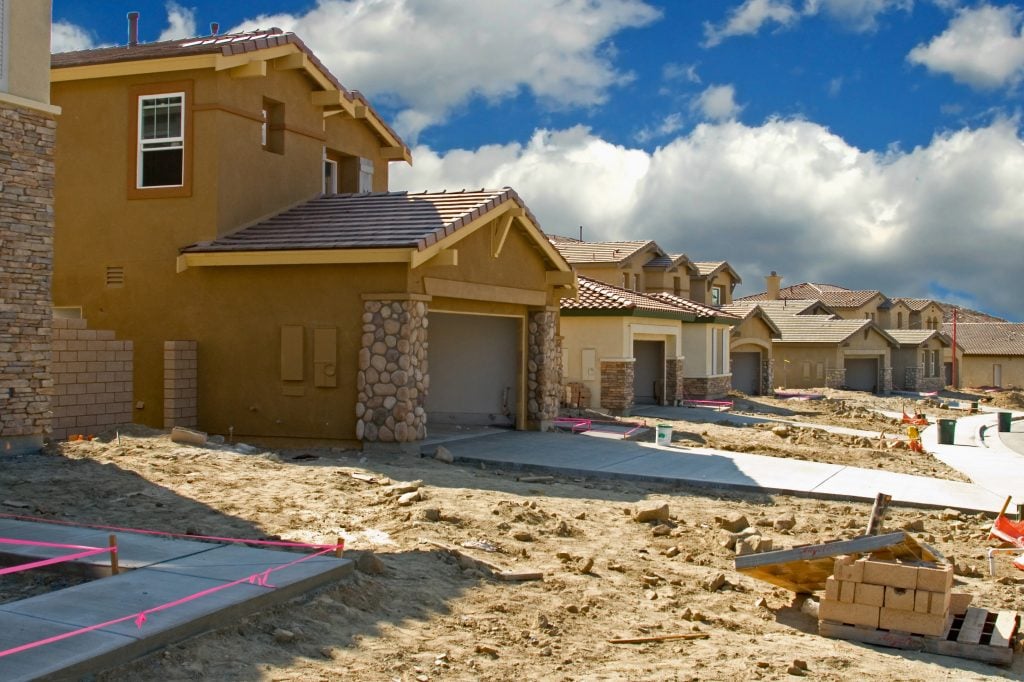Ask Brian is a weekly column by Real Estate Expert Brian Kline. If you have questions on real estate investing, DIY, home buying/selling, or other housing inquiries please email your questions to [email protected].

Question from Kim and Howard in OH: Hello Brian, Our question might be more appropriate for a marriage counselor but it is real estate related so we thought we would ask about the real estate pros and cons first. We’re in our early 30s and have been saving to buy a first home since before we got married 5 years ago. We’ve talked a lot about starting a family and having a yard for children but didn’t talk much about the specific type of house that we wanted until recently. It turns out we couldn’t be further apart on what we want in a home. I want a charming older home, maybe from the 1950s and Howard wants a new home with all of the modern amenities, new appliances, and up-to-date technology. What are the pros and cons of each?
Answer: Hi Kim and Howard. Good to hear from you. First off, I’m not a marriage counselor (I’m divorced) so I’m only answering from a real estate perspective. Buying a home is such a personal choice that you’ll need to find another way to work out the marital disagreement.
The pros and cons of an older or new home really depend on your perspective and preferences. Older homes almost always cost less to purchase but can be much more expensive to maintain and costly to remodel if it hasn’t had a major face-lift in a few decades. Still, there are advantages such as older homes often have much larger lots and even acreage. Older homes will have mature landscaping (that may need serious pruning). On the other hand, many new homes don’t have any landscaping, especially not in the backyard.
If you’re buying brand new, you’ll have several floor plans to choose from, be able to pick the colors, and have some say in the modern appliances and technology that comes with it. While a DIY repainting project for an old house is relatively inexpensive, upgrading a kitchen and modern appliances can easily cost $30k to $50k. Keep in mind that most young couples are a bit cash strapped for a year or two after buying their first home. You may need to live with the old appliances for a while. Even before you get to the appliances, make sure you know what is going on with the utility systems. A new furnace or HVAC system isn’t cheap either. Houses from the 1950s should have had a major electrical system upgrade decades ago. You’ll also want to know the age and condition of the HVAC, plumbing, roof, foundation, possibly water well, septic system, etc. Don’t skimp on a professional home inspection. This inspection may tell you when a septic tank pumping with the help of a septic pumping service will be required.
Bring in experts at the first sign of outdated systems or trouble. Even an upgrade done in the 1980s could be showing signs of age. Still, if these have been upgraded and well-maintained over the years, you probably won’t have problems. Another protective step to take is getting a good Home Warranty plan. Brand new homes shouldn’t have problems with these systems and should come with a warranty from the builder.
Modern amenities are usually a big deal with older homes. Don’t expect a TV cable outlet in every room and you’ll probably find fewer electrical outlets than you’re used to. You can mostly forget internet, surround sound, and security system cables being buried in the walls (think about going wireless when remodeling). Still, if you’re planning a major upgrade, you can have these done to your own preferences and still have the elegance of a sturdy old home.
There are other things you want to consider. Older homes sometimes have lower property taxes because of a lower value and maybe because of the neighborhood. The neighborhood is almost certainly fully developed which means it isn’t likely to experience growth and changes that can come with new developments.
It’s all about tradeoffs. Older homes that have stood the test of time come with a quality and timeless beauty that you don’t find in new construction. On the other hand, newer homes are built to more exacting standards such as fire safety and energy efficiency. However, newer homes tend to have veneer finishes rather than old-growth solid wood. Many new homes have had that veneer pulled back years later to reveal substandard building materials or shoddy workmanship.
Kim and Howard, I hope this helps you better understand the major differences between purchasing a new -v- an old home. Ultimately it’s a big decision that you’ll live with for many years.
Readers are encouraged to comment with their thoughts and experiences about what should be considered when comparing old and new homes.
Our weekly Ask Brian column welcomes questions from readers of all experience levels with residential real estate. Please email your questions or inquiries to [email protected].